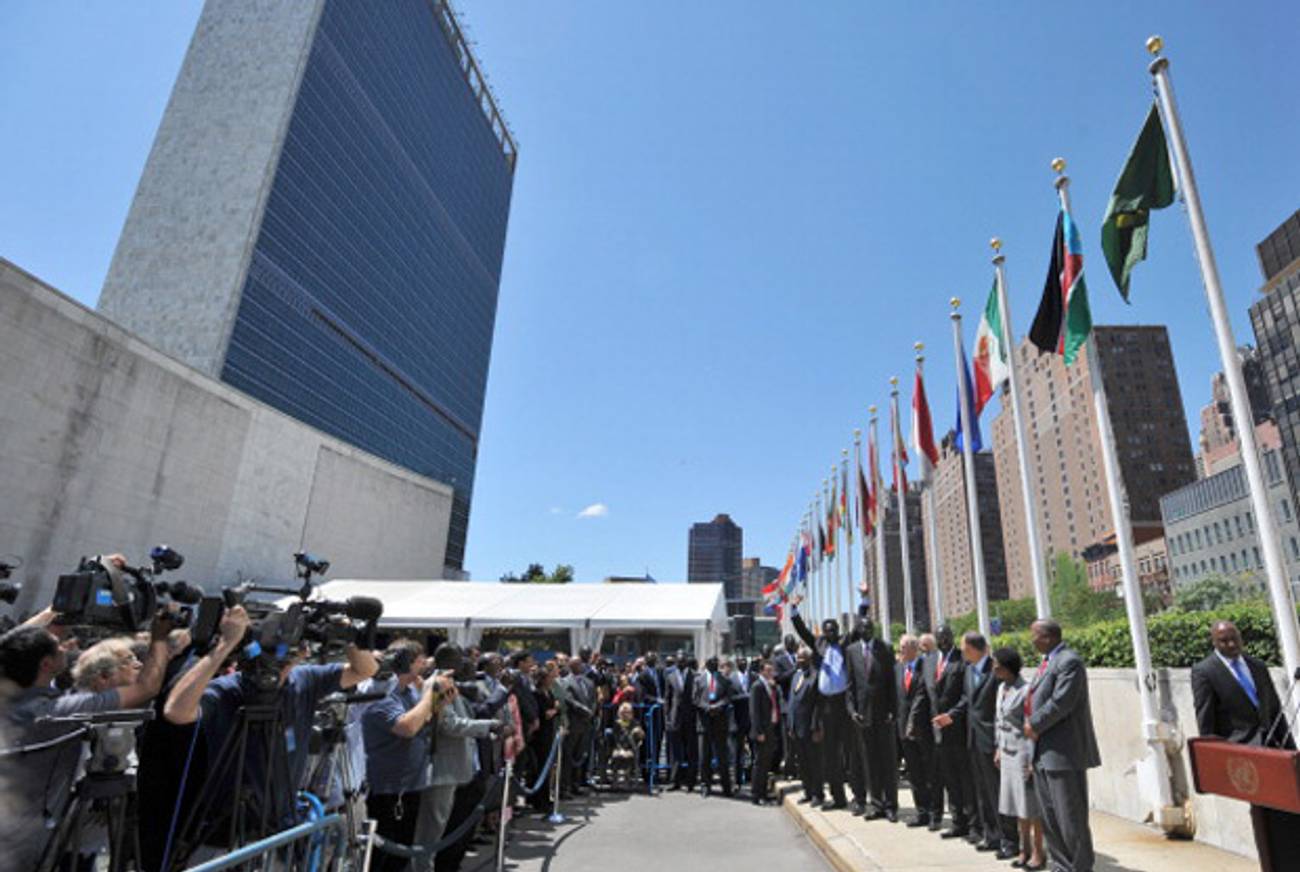The United Nations vs. Rosh Hashanah
What happens if Israeli diplomats must work on the High Holiday?




The 66th regular session (that is, year) of the United Nations General Assembly will formally open next Tuesday, September 13. It will be followed by two weeks of meetings, during which leaders from around the world will fly into New York, clog up midtown hotels, and tend to business in Turtle Bay. “General Debate” will occur on September 21-23 and again from September 26-30. This year, those periods are expected to be more eventful for Israel than usual, what with the Palestinian Authority’s fledgling but still apparently existing plans to push for some upgrade of status.
Which makes it especially inconvenient that, this year, Rosh Hashanah begins at sundown on Wednesday, September 28, smack in the middle of that second period of General Debate. Moreover, unlike most two-day Jewish holidays, of which Israelis celebrate only the first days, observance of Rosh Hashanah extends all the way to sundown that Friday.
What would happen should Israel’s diplomats need to be executing their jobs on the yom tov? “The Israeli government and its representatives observe all national and Jewish holidays,” Gil Lainer, consul for media and public affairs at the Consulate General of Israel in New York, told Tablet Magazine. “Any and all exceptions are made on a case-by-case basis when deemed necessary.” A couple weeks ago, Defense Minister Ehud Barak broke Shabbat to make a (successful) intervention into a burgeoning crisis with Egypt. One imagines a unilateral Palestinian statehood drive would qualify as similarly extenuating. And, anyway, we hear that it is the former period, from September 21-23, that is expected to be most eventful for the Jewish state.
Earlier: Palestinian Move a Go, Followed By …
Marc Tracy is a staff writer at The New Republic, and was previously a staff writer at Tablet. He tweets @marcatracy.